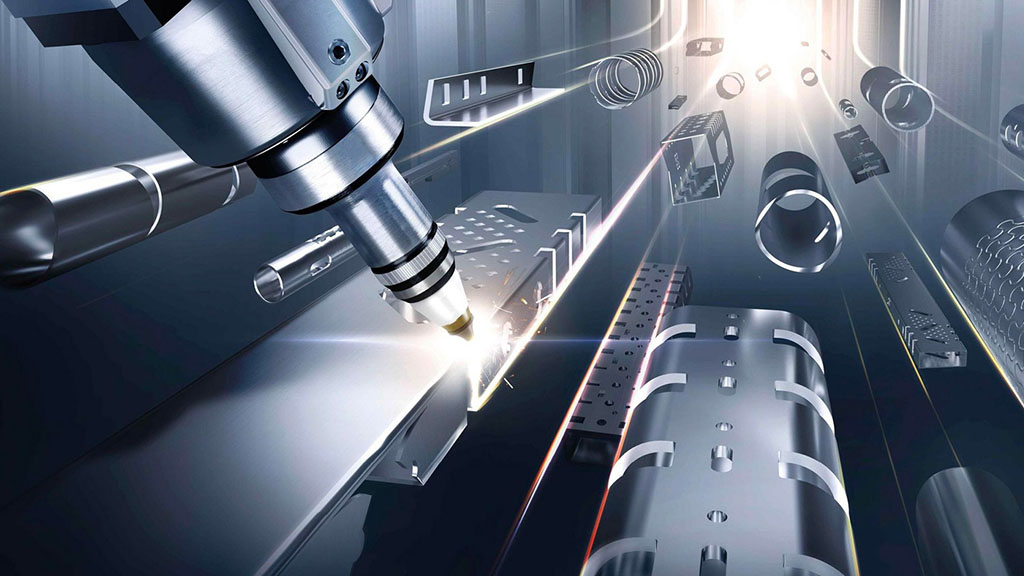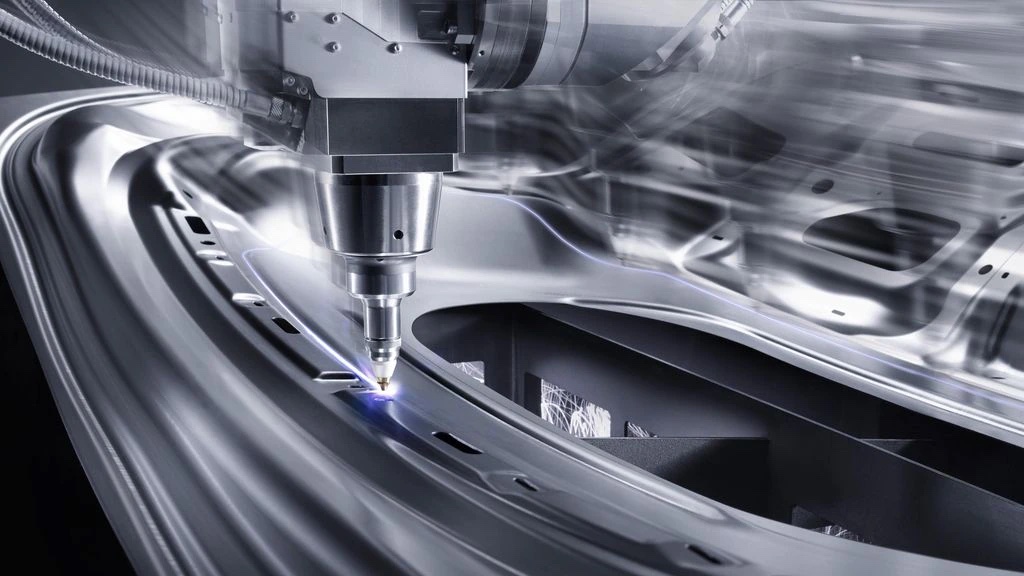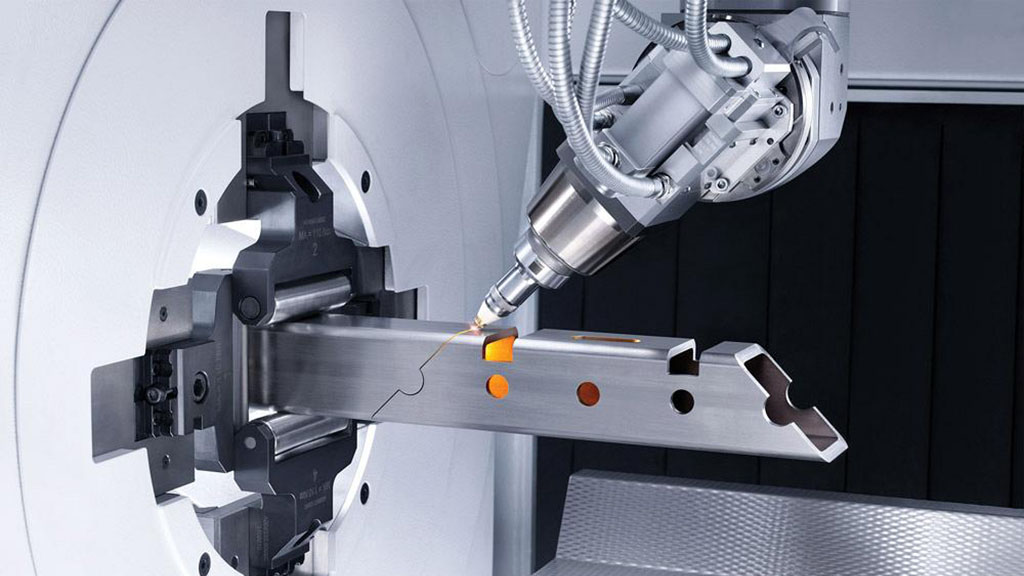Find & Buy The Best Laser Cutting Machine For Metal Fabrication

No matter what metal you need to cut, there's an eco-friendly precision laser cutter that can do it. But it's not easy to choose the right laser metal cutter for your needs and budget from the dazzling options on the market.
To make the process easier, we've put together an expert buying guide to choosing an automatic metal laser cutting machine for hobby and commercial use, with simple explanations of the most important things to consider, as well as expert recommendations that will serve for beginners and professionals.
Without further ado, let's get into laser metal cutting today.
What You'll Learn In This Guide
- What Metals Are Suitable for Laser Cutting?
- What Can Laser Metal Cutting Machines Do?
- What Laser Machine Is Best for Cutting Through Metal?
- Metal Laser Cutting Video Tutorials & Instructions
- How To Buy A Laser Cutter for Metal?
- How To Cut Through Metals with A Laser Cutting Machine?
- Is It Worth Buying A Laser for Metal Cuts?
- Frequently Asked Questions for Laser Metal Cutting
What Metals Are Suitable for Laser Cutting?
Laser cutters are available for cutting through stainless steel, carbon steel, mild steel, tool steel, galvanized steel, spring steel, aluminum, copper, brass, alloy, silver, gold, iron, titanium, chromium, manganese, cobalt, nickel, lead, and other metal materials.
Let's look at the cutting ability and performance (including the laser powers, the cutting thickness and speed) of a laser machine from the following four types of metals.
- Stainless Steel
- Carbon Steel
- Aluminum
- Non-Ferrous Metals


What Can Laser Metal Cutting Machines Do?
Laser cutting machines are used to cut out shapes and contours for sheet metals, square tubes, round tubes, oval pipes, D-shaped pipes, special-shaped pipes, pipe fittings, metal parts, signs, tools, lighting, fitness equipment, kitchenware, tableware, hardware accessories, appliances, car parts, automobile and truck bodies, airplane fuselages and wings.
What Laser Machine Is Best for Cutting Through Metal?
The most popular laser machines for metal cuts on the market include the types of CO2 and fiber optic. The original laser metal cutting machine usually came with a high-power 10.6μm wavelength CO2 laser tube to cut through sheet metals, the speed is slow and the efficiency is low. While the new types of metal laser cutters feature with a 1.08μm wavelength fiber laser generator with a power ranging from 1000 watts to 40,000 watts to cut through metals of various thicknesses at high speed. With a CNC controller, it can not only automatically cut out various contours on sheet metals, but also can cut through pipes and profiles of different shapes at high speed, and even combine robots to achieve 3D metal cutting. In addition, the 10-15% photoelectric conversion rate of CO2 is far less than the 35-40% of optical fiber, so fiber laser is more energy-saving and power-saving. In terms of consumables, the service life of a CO2 laser tube is 10,000 to 20,000 hours, while that of the optical fiber is as high as 100,000 hours, which is maintenance-free. But the CO2 laser also has its own advantages. In addition to cutting metals, it can also cut non-metallic materials such as woods, plastics, acrylics, foams, fabrics, and papers.

Sheet Metal & Tube All-In-One Fiber Laser Cutting Machine for Sale
ST-FC3015GAR
$50,000.00 - $380,000.00
ST-FC3015GAR comes with different laser powers of 1000W, 1500W, 2000W, 3000W, 4000W, 6000W, 8000W and 12000W to cut all types of metals in various thicknesses, including stainless steel, carbon steel, electrical steel, galvanized steel, aluminum zinc plate, aluminum, aluminum alloy, titanium alloy, copper, brass, iron and other metal materials.

Small Metal Laser Cutter with Fiber Laser Generator for Starters on Sale
ST-FC1390
$23,800.00 - $39,800.00
Metal laser cutter ST-FC1390 is a high precision small fiber laser cutting system for hobby use and home business to cut through most types of sheet metals.

Affordable 5x10 Sheet Metal Laser Cutter with Fiber Laser Source for Sale
ST-FC3015E
$13,800.00 - $20,000.00
ST-FC3015E fiber laser cutting machine is a 5x10 sheet metal cutter with powers of 1000W, 1500W, 2000W for stainless steel, carbon steel, aluminum, and brass.

4x8 CO2 and Fiber Laser Combo Cutting Machine for Wood, Acrylic, Metal
ST-FC1325LC
$19,500.00 - $41,000.00
4x8 combo fiber and CO2 laser cutter comes with an all-in-one combination of 150-watt CO2 laser and 1000-watt fiber laser for metal, wood, plywood and acrylic.

Small Laser Metal Jewelry Cutting Machine for Gold, Silver, Brass, Copper
ST-FC3030
$15,800.00 - $20,800.00
ST-FC3030 is a metal jewelry laser cutter to cut out personalized rings, earrings, pendants, bracelets, necklaces, brooches made of silver, gold, brass, copper.

3D Robotic Fiber Laser Cutting System for Industrial Metal Fabrication
ST-1800
$50,000.00 - $78,000.00
Fiber laser cutting robot is a smart 6-axis robotic laser cutter machine used to cut out complex 3D shapes & contours on metals in multiple directions & angles.
Metal Laser Cutting Video Tutorials & Instructions
We have made some video tutorials and instructional videos, as well as demo videos to show how a laser cutting machine works on sheet metals, metal tubes and profiles with various powers including 300 watts, 1,000 watts, 1,500 watts, 2,000 watts, 3,000 watts, 4,000 watts, 6,000 watts, 8,000 watts, 10,000 watts, 12,000 watts, 15,000 watts, 20,000 watts, 30,000 watts, and up to 40,000 watts. You can watch in these raw speed videos from the most intuitive angle: What can it cut? How is it cut? How about the accuracy and speed of its cutting?
How To Buy A Laser Cutter for Metal?
Here are 8 helpful steps you can follow when considering buying a laser machine to cut metal.
Step 1. Assess Your Needs and Budget.
You should know exactly what metal you are going to cut with laser, what shape and profile to cut out, and the thickness and size of the metal. Then plan your budget range as your finances allow.
Step 2. Compare Features and Costs.
You should do some research on laser machines and CNCs, compare the features and costs from different popular brands and models by reading expert reviews online.
Step 3. Request A Trial Cut.
After selecting a few merchants you are satisfied with, you can request sample cutting, inspect the cuts through video or live broadcast, compare the quality, precision and speed, and then make your decision.
Step 4. Get Your Free Quote.
Request a free quote with specific machine configurations, warranty, service and support, payment methods and shipping times from the merchant of your choice.
Step 5. Sign A Contract.
After the two parties confirm the details of the transaction, sign a contract, make payment, place an order, and start machine manufacturing.
Step 6. Manufacturing and Inspection.
Laser machine manufacturing requires a production cycle of 15-30 days, and you can follow up your machine manufacturing progress at any time as needed. After the production is completed, start on-site or remote inspection. After debugging and testing, arrange transportation after confirming that your machine is running without any problems.
Step 7. Shipping and Delivery.
Start shipping according to the logistics method agreed in the contract, and track the logistics progress at any time until the receipt is confirmed.
Step 8. Get Your Laser.
Check the packaging for integrity upon receipt. Are there missing parts and accessories. Then assemble and try the laser metal cutting machine. If there is any problem, request the technicians from the merchant to provide technical support until the machine works well.
How To Cut Through Metals with A Laser Cutting Machine?
Here are 8 easy-to-follow laser metal cutter operation steps, which have great reference value for starters and professionals, but the specific operation should be adjusted according to the actual situation.
Step 1. Fix the sheet metal on the workbench (the pipe needs to be fixed on the chuck), and adjust the cutting parameters according to the size and thickness of the metal.
Step 2. Select the appropriate nozzle and lens, and check its integrity and cleanliness before starting the machine.
Step 3. Adjust the focal length to move the cutting head to the proper focus position, check and adjust the nozzle centering, and then calibrate the cutting head sensor.
Step 4. Select the appropriate auxiliary gas and check the gas pressure. If the pressure is insufficient, it needs to be replaced in time.
Step 5. Try cutting to check whether the cutting end face is smooth and whether the accuracy meets the needs. If there is any dissatisfaction, please adjust the cutting parameters until it meets the your needs.
Step 6. Design the graphics and make the corresponding layout, and import it into the CNC cutting system.
Step 7. Positioning the cutting head and start cutting metal.
Step 8. If an emergency occurs and a quick response is required, press the emergency stop button.
Is It Worth Buying A Laser for Metal Cuts?
Is a metal laser cutter worth it? A question likely on the lips of many customers on the cusp of shelling out for their first laser. In fact, the value created by a laser machine is much higher than its own cost, even though the initial investment cost is a bit higher. A laser metal cutting machine is easy to cut through any metals from stainless steel to gold. It can be applied to any scene, from simple sign making to precise auto parts manufacturing.
Maybe you need to take some detours when getting started, you will need to learn to design your cuts and even troubleshoot the machine. But once you get over the learning curve and are capable of making quality cuts used for small business and industrial manufacturing, a laser metal cutter is definitely worth buying.
Frequently Asked Questions for Laser Metal Cutting
In the process of researching, purchasing and using laser machines, you will be troubled by more or less problems. If you don't know how to troubleshoot, here is the right place where you can learn and solve some frequently asked questions.
Fiber & CO2 laser cutters can cut a variety of metals, from stainless steel and alloy to non-ferrous metals. Aluminum, silver, gold and other reflective metals are difficult to cut for CO2, where fiber laser is a better choice. Today, metal cuts can even be as thick as 100 mm, depending on the power of the laser.
Laser metal cutting machines can cut metals of various thicknesses. Different laser powers will result in different maximum cutting thicknesses. In the case of the same power, the maximum thickness of laser cutting different metals is also different. The 1,000-watt laser can cut carbon steel up to 10mm thick, while stainless steel up to 5mm, aluminum and copper up to 3mm. The 20,000-watt laser can cut carbon steel and stainless steel up to 90mm, aluminum up to 80mm, brass and copper up to 70mm.
An entry-level sheet metal laser cutter starts around $18,000 in most cases, while some high-end models cost as expensive as $15,000. An automatic fiber laser tube cutter is typically worth from $60,000 to $200,000. A low-power 1,000 watts all-in-one sheet metal & tube laser cutting machine costs $50,000, while a high-power 12,000 watts laser is priced as much as $360,000. If you want to invest in a multi-axis 3D laser metal cutting robot, you'll have to pay at least $80,000.











